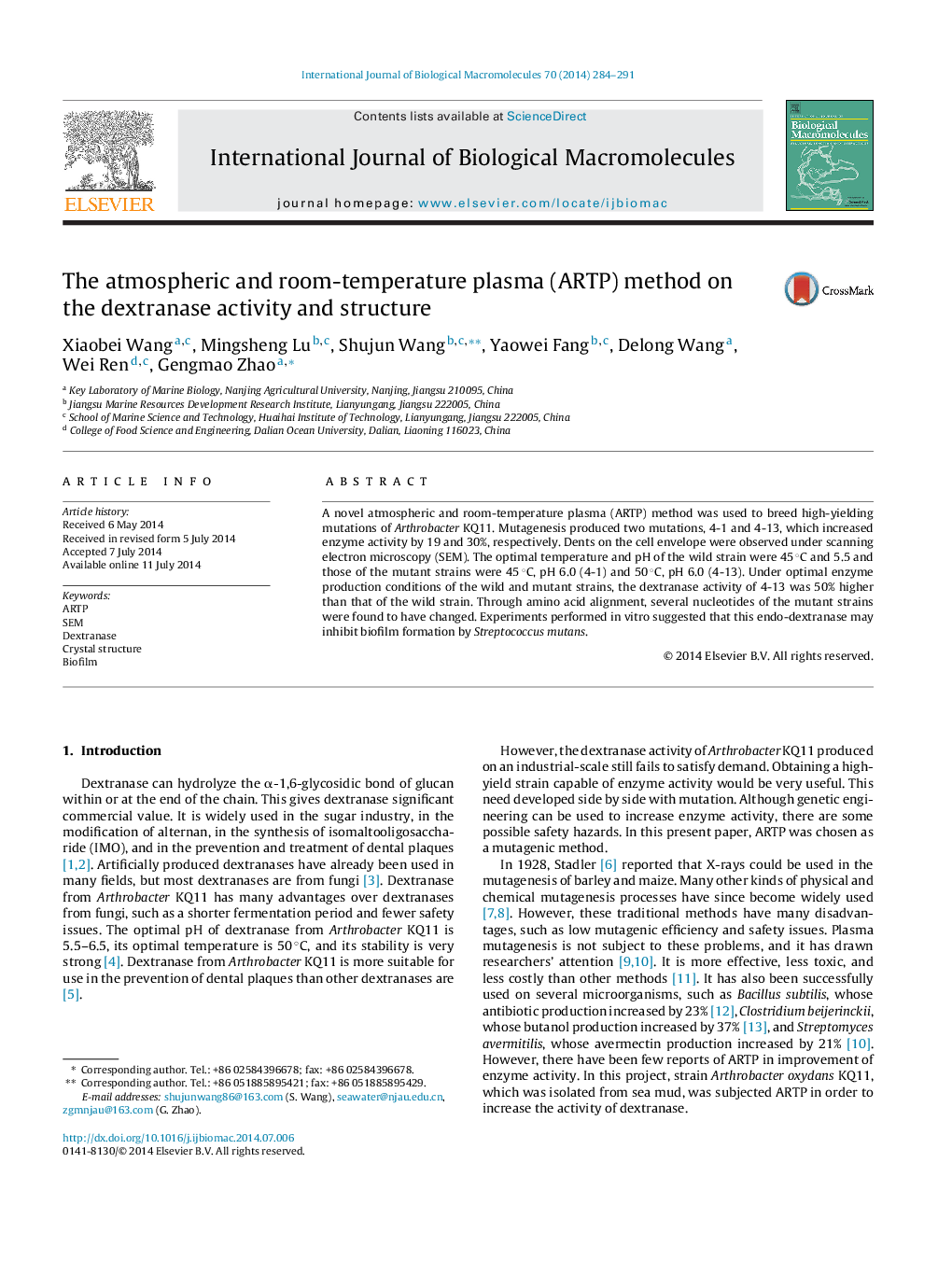| Article ID | Journal | Published Year | Pages | File Type |
|---|---|---|---|---|
| 1986339 | International Journal of Biological Macromolecules | 2014 | 8 Pages |
Abstract
A novel atmospheric and room-temperature plasma (ARTP) method was used to breed high-yielding mutations of Arthrobacter KQ11. Mutagenesis produced two mutations, 4-1 and 4-13, which increased enzyme activity by 19 and 30%, respectively. Dents on the cell envelope were observed under scanning electron microscopy (SEM). The optimal temperature and pH of the wild strain were 45 °C and 5.5 and those of the mutant strains were 45 °C, pH 6.0 (4-1) and 50 °C, pH 6.0 (4-13). Under optimal enzyme production conditions of the wild and mutant strains, the dextranase activity of 4-13 was 50% higher than that of the wild strain. Through amino acid alignment, several nucleotides of the mutant strains were found to have changed. Experiments performed in vitro suggested that this endo-dextranase may inhibit biofilm formation by Streptococcus mutans.
Related Topics
Life Sciences
Biochemistry, Genetics and Molecular Biology
Biochemistry
Authors
Xiaobei Wang, Mingsheng Lu, Shujun Wang, Yaowei Fang, Delong Wang, Wei Ren, Gengmao Zhao,
